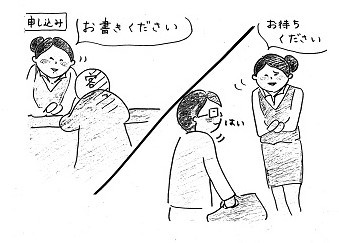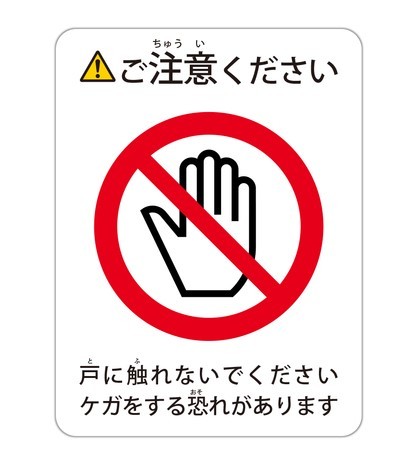お~ください (o-kudasai) Meaning Japanese Grammar - Please Do
Anna Baffa Volpe
Get in touch with meThe expression お~ください (o-kudasai) represents the imperative form of くださる and means please, combined with the verb that expresses the action of the request.
It is a form of Keigo honorific language to ask the interlocutor to perform a certain action or when it is recommended to do a certain thing.
In this post we learn more about the meaning of お~ください, how it is formed and when お~ください is used through real example sentences.
How お~ください is formed
"This form is widely used in Japanese and consists of:
- the honorific prefix お or ご
- the verb base: same form for Ichidan Verbs and B2 or Base in い for Godan verbs
- and the verb ください
Ichidan verb: 伝える transmit, report, communicate
Depending on the context, お伝えください can be translated into different English phrases, such as:
- Please tell me
- Please inform me
- Please pass on the information
Godan verb: 聞く listen, ask
"Depending on the situation, the translation of お聞き下さい can be either Please listen or Please ask.
How and when to use お~ください
'お~下さい' is an expression of Keigo, the honorific language, specifically the 尊敬語 Sonkeigo language of respect.
It is the imperative form of the verb 下さる and is commonly translated as please do.
This form is typically used in formal contexts when addressing the owner or a superior in a company, customers in a commercial setting or elderly people.
In a previous post, we studied the use of 下さい for making polite requests preceded by a noun or the て form of a verb.
Example with the Godan verb 使う use, make use of
ご自由にお使いください。
Please feel free to use it.
Verb 待つ wait
しばらくお待ち下さい。
Please wait for a little while.

店の人がお客様に言います。お書きください。お待ちください。
The shopkeeper tells the customer: Please write down. Please wait.
Prefixes お and ご with the verb する
In the case of the form: Noun + Verb する (to do), the verb is omitted and the form becomes:
電話する call
お電話下さい。
Please call me.
With some nouns, the honorific prefix is 御 go 確認する confirm
ご確認下さい。
Please confirm.
安心する be at ease, feel secure, feel relieved
ご安心下さい。
Please rest assured.
注意する be careful, take care

ご注意ください。戸に触れないでください。ケガをする恐れがあります。
Please be careful. Do not touch the door as this may cause injury.
Examples of お~ください
Verb 申し込む: apply for, make an application
お申込み下さい。
Please apply.
またお越し下さい。
Visit us again, please.
お越しになる is a verb that you will often hear in formal conversations among Japanese people; it is the Keigo form of the verbs 来る come and 行く go
どうぞお上がりください。
Please help yourself.
The previous expression is used on the occasion of a meal, especially when the meal is hosted by someone considered to be in a formal position.
It also has another meaning in line with the verb 上がる which means go up:
⇨ Please go up.
お~ください can often be seen in signs displayed in various Japanese canteens, particularly in recent years.

黙食にご協力ください。会話と食事を分け、ノーマスクでの会話はお控え下さい。
Please cooperate by eating in silence. Please separate your conversation from your meal and refrain from talking without a mask.
We find in this sign the forms:
- ご協力ください: a polite request
asking for cooperation - お控えください: an expression used to request someone to
refrain fromoravoid something
Similar grammar points in Japanese 📚
~ていく
~ていく (teiku) Meaning Japanese Grammar - Keep Doing
てよかった
てよかった (te yokatta) Meaning Japanese Grammar - I'm Glad That...
それでもいい
それでもいい (soredemoii) Meaning Japanese Grammar - It's Fine
それでも
それでも (sore demo) Meaning Japanese Grammar - Still
させられる・せられる
させられる・せられる (saserareru serareru) Meaning Japanese Grammar - To Be Made To Do Something
ないで
ないで (naide) Meaning Japanese Grammar - Without Doing